How Often Should My Cat Pee? What You Need to Know
As with humans, it’s important to monitor your cat’s urine. This is to ensure that your kitty is in good health. So how often should my cat pee? On average, a cat should urinate at least two to four times a day. Cats that drink more will typically pee more often. However, you should watch out for excessive peeing or lack thereof, which indicates a health problem.
How frequently should a cat pee per day?
Adult cats should pee around 2 to 4 times within 24 hours. On average, this is equivalent to half a cup of urine for a 10-pound cat per day.
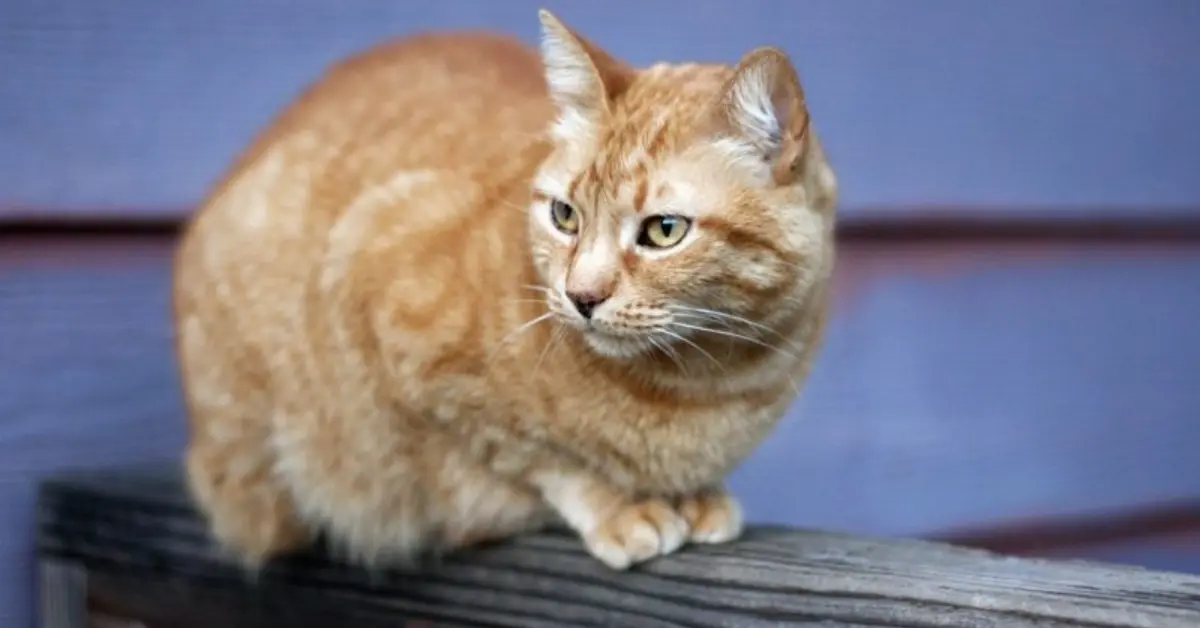
However, factors like humidity, hydration, and overall health will affect a cat’s urination frequency. For cats with kidney disease, hormonal imbalances, diabetes, and bladder infections, urination frequency is a sliding scale.
Aside from how often your cat pees, it’s important to monitor its color and smell. Any sudden and major changes in these indicate a potential health problem that requires veterinary care.
How often do kittens pee?
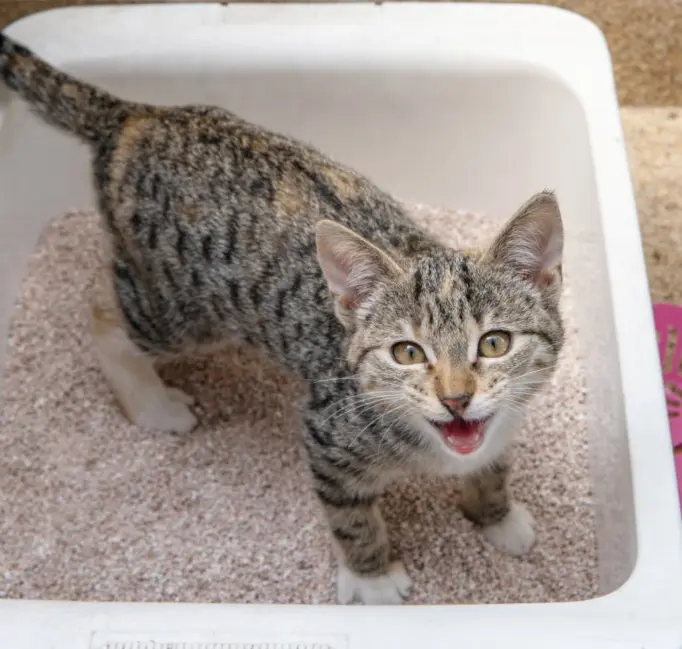
Unlike adult cats, kittens will urinate every time it’s stimulated. Take note that kittens younger than three weeks old need their mama’s help to stimulate elimination. Mother cats do this by licking the kittens’ rear.
After every meal, the kitten needs to be stimulated. It has to urinate every time it’s stimulated, on which the frequency relies on how often the kitten feeds from its mother cat.
Once the kitty reaches three weeks old, it can regulate its bladder independently and will urinate up to four times a day.
How often do cats pee at night?

Depending on the amount of water it drank before bedtime, cats may pee once or twice during the night. Some kitties will not pee throughout the night, especially if they established a habit of using the litter box only during the day.
Nevertheless, it’s best to place multiple litter boxes all over your house. This will let the kitty urinate whenever it needs to go. learn here how to find cat pee
Why is my cat not peeing enough?
If your cat is only peeing once a day or goes by without urinating for 24 hours, you should be alarmed. Even a human that goes this long with peeing is a cause of concern. There’s a high chance that your pet is suffering from a urinary problem.
Feline Lower Urinary Tract Disease or FLUTD is the common culprit behind this. FLUTD will make it hard for cats to pee due to bladder inflammation.
Feline Lower Urinary Tract Disease is caused by a bacterial infection, but mineral imbalance is also a culprit. Cats with abnormal pH levels in their urine also have a high risk of developing this problem.
It can range from mild to serious, which can be as worse as a stone formation on your cat’s kidneys. In some cases, a urethral plug will form, which will block the passage of urine on your cat’s body.
Felines with this condition will often strain while peeing, even if no urine is coming out. You should take the kitty to the vet’s clinic immediately because this condition is life-threatening and can be deadly in a matter of hours.
On the other hand, some cats will pee too often. This is due to metabolic problems like diabetes since cats with this condition have increased thirst.
How long can a cat hold its pee?
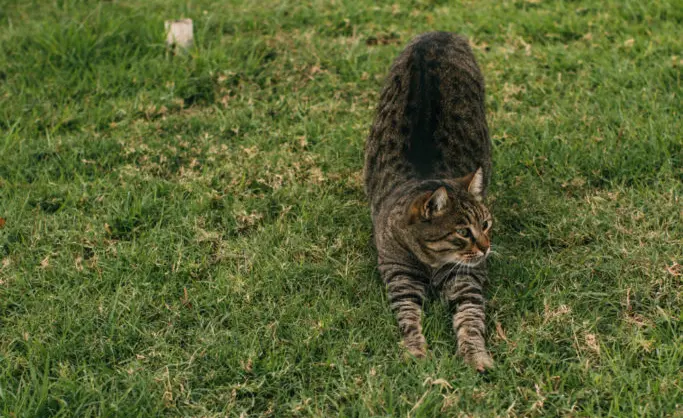
A cat can hold its pee for up to 48 hours, but I don’t suggest pushing your kitty to its limits. The longer your cat holds its bladder, the higher will be its risk of developing urinary problems.
Take note that urine stuck inside the bladder will change its pH level over time. This means that your cat will likely develop kidney stones, especially if forced to hold its pee repeatedly. Take note that cats forced to hold their bladder for long can die.
Your cat should have access to a litter box all the time. If you’re traveling with the kitty, you should take short breaks every six hours so the cat can eliminate.
If you have a planned trip with your cat, you can reduce its water intake a few hours before you leave. This will reduce the cat’s urination frequency. You can still give small amounts of water along the way so the feline will not become dehydrated, especially on a hot day.
Why does my cat take so long to pee?
If your cat is peeing for long, it could mean that the kitty ingested a lot of water. However, if the kitty is straining for long before pee comes out, you should have it checked. Your cat might be suffering from urinary problems like kidney stones, urinary infection, or urethral blockage. All of these will make it hard for your cat to urinate. Please read here why does my cat pee in the sink
Aside from that, you should watch out for poor bladder control. One of the tell-tale signs here is dribbling urine. This happens a lot when the kitty has to hold its bladder for a long. The muscle is yet to relax so the cat will take a bit longer to pee. If this happens all the time, you should schedule an appointment with the vet.
What do crystals in cat urine look like?
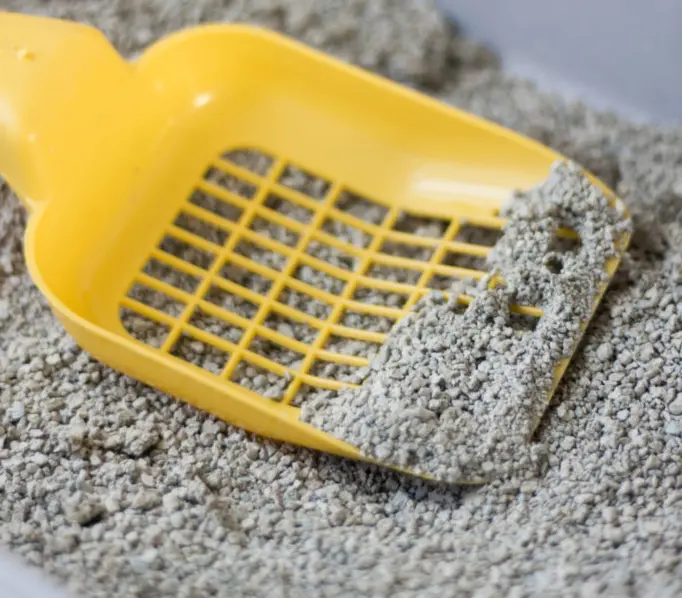
Crystals on a cat’s urine are microscopic so it can be hard to detect by the naked eye. If you’re worried that your cat has kidney crystals, you should take your pet to the vet. The veterinarian will conduct a blood test and urine sampling to detect the crystal levels on your cat’s pee. This test will also yield other results that will help diagnose various health problems.
Still, you should watch out for any changes in color, consistency, and frequency of your cat’s urine. If anything is off, you shouldn’t hesitate to consult the vet.
Why is there blood in my cat’s urine?
Blood in the urine is more common than what most pet owners think.
The most common cause of bloody urine is hematuria, which occurs due to an abnormality in the urinary tract of a cat. However, hematuria is often caused by bladder stones, urinary tract infection, and feline idiopathic cystitis (FIC). All of these require immediate veterinary care since it will not go away on their own.
Upon taking your cat to the vet’s clinic, it will undergo blood chemistry, urinalysis, X-rays, and other tests. It depends on your cat’s overall health condition and the vet’s discretion if your kitty will require examination.
For hematuria, veterinarians often use antibiotics and urinary acidifiers. Other medications will be administered if your kitty has complications or other underlying conditions.
Overall, you should never ignore bloody urine. You should take your cat to the vet as soon as you discover the blood traces.
Why does my cat’s pee have a strong smell?
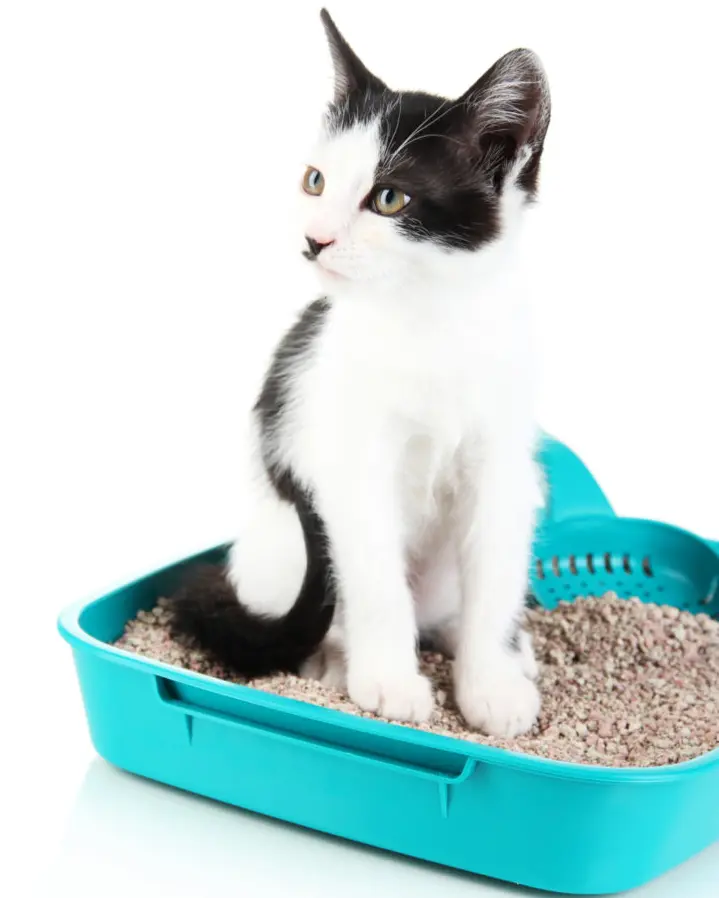
Normally, cat urine will have an acidic and pungent smell. However, this smell should be bearable and not too repulsive. If your cat’s litter box is smelling stronger than normal, you should consider the possibility of bladder infections on your cat. learn here what smells essential oils to deter cats from peeing
However, you should know that some food items can make your cat’s urine smell stronger than usual. Asparagus, for one, will cause a cat’s pee strong-smelling. Cat food products with very high protein levels will also increase the urine’s smell as it expels the excess.
Also, most cats aren’t fond of drinking water. This will cause a concentrated ammonia smell on their urine since the pee itself is concentrated. It’s important to encourage your cat to drink more by giving it a wet meal and juicy treats.
In addition, cats can drink a small amount of unsweetened brewed tea(Can cat drink tea) to break the monotony of plain water.
Conclusion
How often should my cat pee? Twice or up to four times a day is the healthy frequency. If your cat is peeing fewer or more than that, it’s best to bring it to the vet. Any major change in your cat’s peeing habits might indicate a urinary infection and other bladder problems.
